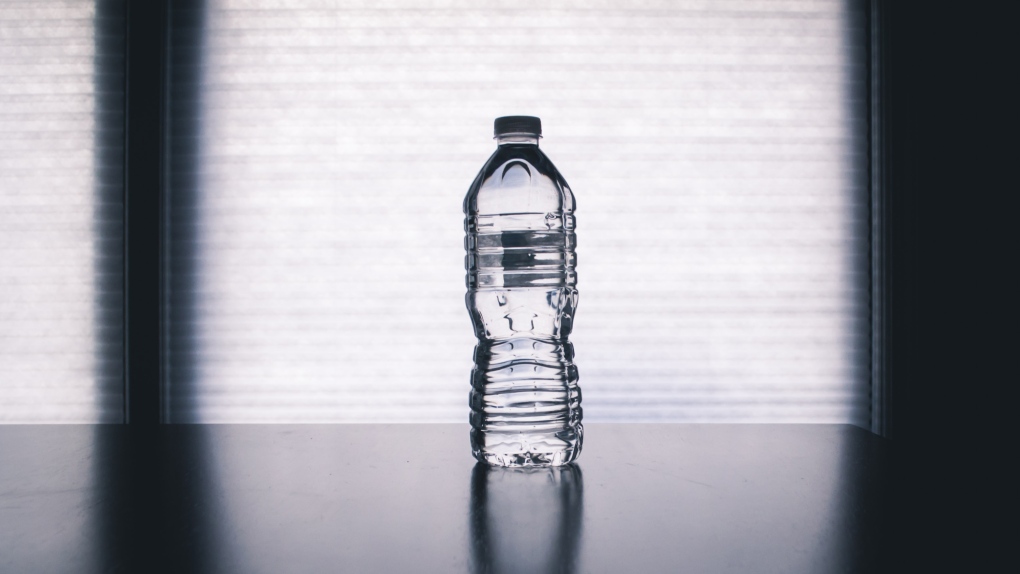Eliminating single-use plastics at municipal facilities in Sudbury to cost $1M
 FILE (Photo by Steve Johnson from Pexels)
FILE (Photo by Steve Johnson from Pexels)
A proposal headed to Sudbury's operations committee next week recommends spending around $1 million to eliminate the use of single-use plastic water bottles at municipal facilities across the city.
The $1 million would be spent on replacing drinking fountains with 132 water-refilling stations over the next five years. Each refilling station costs $8,000.
A staff report on the proposal said single-use plastic water bottles are made with Polyethylene Terephthalate (PET) plastics. Greater Sudbury dealt with an average of 490 tonnes of PET plastics per year at the recycling centre in the last three years.
"According to a study conducted by the Container Recycling Institute, over 60 per cent of recycled PET plastics are single-use water bottles," the report said.
"This would suggest that the City of Greater Sudbury has managed and recycled approximately 882 tonnes of plastic water bottles through the Blue Box program from 2019 to 2021. This would not include any plastic water bottles that are disposed in the garbage or collected as litter."
With high quality water and hundreds of lakes, the report said "residents should be encouraged to use municipal tap water as a viable and inexpensive source of drinking water that also has the benefit of reducing waste."
In addition, water-refilling stations have emerged in recent years as a key way for homeless and other vulnerable populations to access clean drinking water.
"It is crucial for this population to have access to water stations both outdoors during the summer season and indoors for continued access during the winter months," the report said.
"Increasing access to water refill stations will be a benefit to the quality of life and health of the city’s residents."
The report listed some minor disadvantages, such as the possibility vending machine companies will replace water bottles with sugar drinks in plastic containers, or the public may become upset to learn they can't get a water bottle.
"Education will be key to migrating this change," the report said.
"Promotional and educational materials will be developed and distributed … to ensure residents are informed of the change and encouraged to drink water and reduce waste by using refilling stations when visiting municipal facilities."
Read the full report here.
CTVNews.ca Top Stories

DEVELOPING Man sets self on fire outside New York court where Trump trial underway
A man set himself on fire on Friday outside the New York courthouse where Donald Trump's historic hush-money trial was taking place as jury selection wrapped up, but officials said he did not appear to have been targeting Trump.
BREAKING Sask. father found guilty of withholding daughter to prevent her from getting COVID-19 vaccine
Michael Gordon Jackson, a Saskatchewan man accused of abducting his daughter to prevent her from getting a COVID-19 vaccine, has been found guilty for contravention of a custody order.
She set out to find a husband in a year. Then she matched with a guy on a dating app on the other side of the world
Scottish comedian Samantha Hannah was working on a comedy show about finding a husband when Toby Hunter came into her life. What happened next surprised them both.
Mandisa, Grammy award-winning 'American Idol' alum, dead at 47
Soulful gospel artist Mandisa, a Grammy-winning singer who got her start as a contestant on 'American Idol' in 2006, has died, according to a statement on her verified social media. She was 47.
'It could be catastrophic': Woman says natural supplement contained hidden painkiller drug
A Manitoba woman thought she found a miracle natural supplement, but said a hidden ingredient wreaked havoc on her health.
Young people 'tortured' if stolen vehicle operations fail, Montreal police tell MPs
One day after a Montreal police officer fired gunshots at a suspect in a stolen vehicle, senior officers were telling parliamentarians that organized crime groups are recruiting people as young as 15 in the city to steal cars so that they can be shipped overseas.
The Body Shop Canada explores sale as demand outpaces inventory: court filing
The Body Shop Canada is exploring a sale as it struggles to get its hands on enough inventory to keep up with "robust" sales after announcing it would file for creditor protection and close 33 stores.
Vicious attack on a dog ends with charges for northern Ont. suspect
Police in Sault Ste. Marie charged a 22-year-old man with animal cruelty following an attack on a dog Thursday morning.
On federal budget, Macklem says 'fiscal track has not changed significantly'
Bank of Canada governor Tiff Macklem says Canada's fiscal position has 'not changed significantly' following the release of the federal government's budget.






























